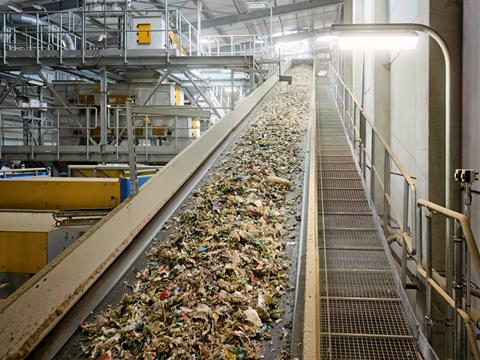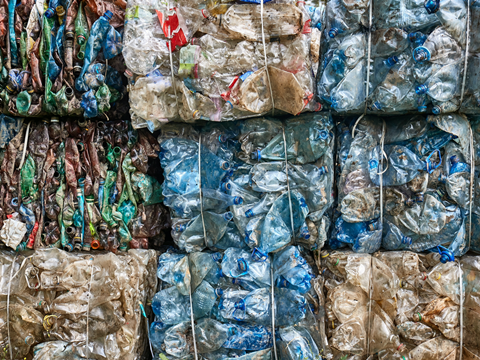
Closed Loop Partners has published new data - retrieved through utilizing AI-powered vision systems - which reveals high volumes of recycled food-grade polypropylene (PP) has been captured at materials recovery facilities (MRFs).
The study was led by the Closed Loop Foundation and Closed Loop Partners’ Center for the Circular Economy in collaboration with technology company Greyparrot and four U.S. MRFs. AI-powered vision systems were used to characterize the PP recycling stream, apparently filling data gaps on the availability of food-grade PP, potentially creating new opportunities to return the material to foodservice packaging supply chains.
Closed Loop Partners says the findings are released amidst growing demand for recycled food-grade PP, driven by policy shifts including recycled content mandates and Extended Producer Responsibility (EPR), and commitments from brands to incorporate more recycled materials in their packaging. The company states that with no easy way to differentiate food-grade and non-food-grade PP materials, they typically blend together at MRFs, making it challenging to amass the appropriate quantities of food-grade PP to meet growing market demand.
With funding from the NextGen Consortium and the Closed Loop Foundation, the Center for the Circular Economy teamed up with Greyparrot and four MRFs to reveal what was in the PP recycling stream, including the volume of food-grade and non-food-grade items and features such as colour and format. Nearly 45 million individual PP and non-PP objects were characterized over the course of the study.

Closed Loop Partners says that on average, more than 75% of the PP captured in the study was white or clear, most of which was also presumed to be food grade; and over 30% of clear PP packaging identified was beverage cups. It adds that AI systems such as the Greyparrot Analyzer proved reliable in providing effective material characterization data at ‘previously unavailable’ scales.
The study also found that upgrades to optical sortation technology at MRFs had a notable impact on improved material sortation, progress that the AI technology was able to track and provide critical analytics on, indicating the potential for AI to offer enhanced performance evaluation data for MRF operators.
In February Maybelline New York, L’Oréal Groupe, Kraft Heinz, P&G, and Target all contributed to a Closed Loop Partners report laying out a roadmap to recovering small-format packaging materials from materials recovery facilities (MRFs) and glass recycling plants. In collaboration with Circular Services and its twenty MRFs across the United States, Closed Loop Partners’ Center for the Circular Economy collected samples from two MRF’s glass streams and one glass recycling plant’s residue streams to evaluate their contamination.
Last December, Re-Gen utilized Polytag’s watermarking technology to accurately count individual items of packaging among the 250,000 tonnes of mixed household waste recycled at its Newry material recovery facility every year. The facility in claims to handle 25% of all the waste generated in Northern Ireland, as well as materials from the Republic of Ireland, England, Scotland, and Wales.
If you liked this story, you might also enjoy:
The ultimate guide to the Packaging and Packaging Waste Regulation in 2024
How are the top brands progressing on packaging sustainability?
Sustainable Innovation Report 2024: Current trends and future priorities
Everything you need to know about global plastic sustainability regulation














No comments yet